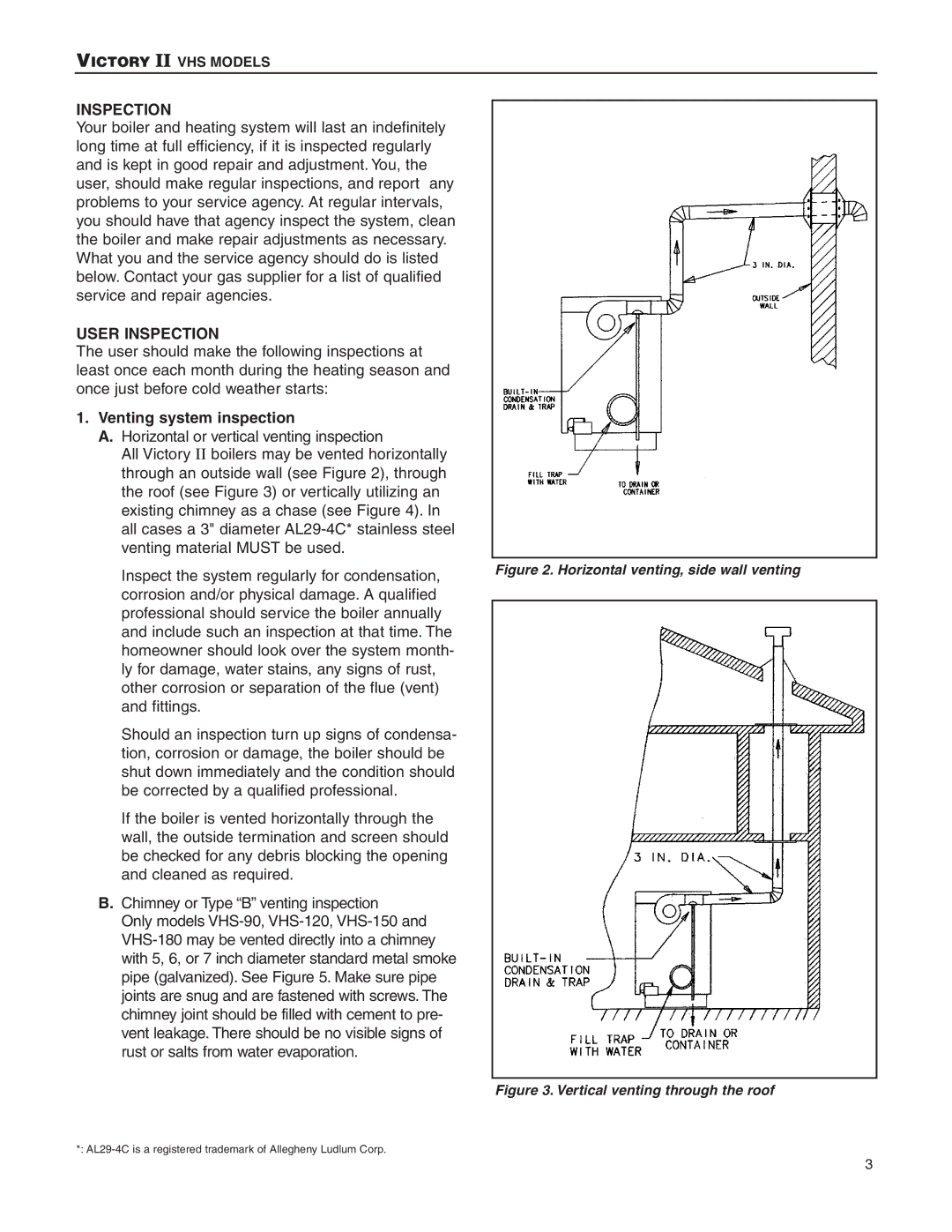VHS-90, VHS-120, VHS-150 specifications
Slant/Fin is a renowned manufacturer in the heating industry, known for producing high-quality hydronic heating solutions. Among their notable offerings are the VHS series of gas-fired hot water boilers, which include the VHS-120, VHS-90, and VHS-150 models. These boilers are characterized by their advanced design and technology that focuses on efficiency, reliability, and user convenience.The VHS-120, VHS-90, and VHS-150 are designed for residential and light commercial applications, making them versatile choices for various settings. Each model features a stainless steel heat exchanger that enhances durability and efficiency. The stainless steel construction allows for superior heat transfer, contributing to more effective water heating and lower operational costs.
One of the standout technologies in the VHS series is its modulating operation. This feature allows the boiler to adjust its output based on the heating demand, resulting in significant energy savings. With the ability to modulate, these boilers operate quietly and efficiently, only using the energy necessary to meet your specific heating needs. This is particularly beneficial in climates with fluctuating temperatures, as the system can provide consistent comfort without overspending on fuel.
Safety is also paramount in the design of the VHS series. These boilers come equipped with multiple safety features, including a high limit control, flow switch, and a spill switch. These systems work together to ensure that the boiler operates within safe parameters, minimizing the risk of accidents.
Additionally, the VHS series boasts a compact design, making installation easier in tight spaces. The user-friendly control interface allows for straightforward operation and monitoring, empowering users to manage their heating systems effectively. This simplicity extends to maintenance as well; the models are designed for easy access to critical components, making routine checks and servicing hassle-free.
In terms of performance, the VHS-120, VHS-90, and VHS-150 offer a range of heating capacities, enabling them to cater to various building sizes and needs. Their efficiency ratings comply with modern standards, making them environmentally friendly options for homes and businesses looking to reduce their carbon footprint.
In conclusion, the Slant/Fin VHS series — VHS-120, VHS-90, and VHS-150 — represents a blend of innovation and reliability. With their advanced heating technology, safety features, and ease of use, they stand out as excellent options for anyone in need of an efficient and dependable heating solution.

